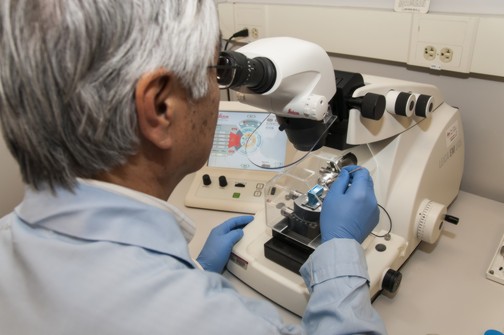
The National Institute on Aging leads a national scientific effort to understand the nature of aging in order to promote the health and well-being of older adults. The NIA mission is to:
- Support and conduct genetic, biological, clinical, behavioral, social, and economic research related to the aging process, diseases and conditions associated with aging, and other special problems and needs of older Americans.
- Foster the development of research and clinician scientists in aging.
- Provide research resources.
- Communicate information about aging and advances in research on aging to the scientific community, health care providers, and the public.
 The face of aging in the United States is changing dramatically. People are living longer, achieving higher levels of education and experiencing increasingly lower rates of disability. Life expectancy nearly doubled during the 20th Century with a ten-fold increase in the number of Americans age 65 or older. Our health care, insurance, and retirement systems face the daunting task of meeting the needs of a rising number of diverse population groups, and the impact of an increasingly diverse elderly population on our communities is not fully understood. To meet these challenges, the NIA strongly supports the development of a diverse workforce of talented researchers and clinician scientists in aging and geriatrics. Researchers from diverse backgrounds can provide a valuable perspective on the development of approaches to promote health and limit disability in our diverse population of older adults.
The face of aging in the United States is changing dramatically. People are living longer, achieving higher levels of education and experiencing increasingly lower rates of disability. Life expectancy nearly doubled during the 20th Century with a ten-fold increase in the number of Americans age 65 or older. Our health care, insurance, and retirement systems face the daunting task of meeting the needs of a rising number of diverse population groups, and the impact of an increasingly diverse elderly population on our communities is not fully understood. To meet these challenges, the NIA strongly supports the development of a diverse workforce of talented researchers and clinician scientists in aging and geriatrics. Researchers from diverse backgrounds can provide a valuable perspective on the development of approaches to promote health and limit disability in our diverse population of older adults.
- Research Supplements to Promote Diversity in Health-Related Research (Admin Supp - Clinical Trial Not Allowed)
- Ruth L. Kirschstein National Research Service Award (NRSA) Individual Predoctoral Fellowship to Promote Diversity in Health-Related Research (Parent F31)
- Ruth L. Kirschstein National Research Service Award (NRSA) Institutional Research Training Grant (Parent T32)
- Aging Research Dissertation Awards to Increase Diversity (R36)
- NIH MSTEM: Advancing Diversity in Aging Research (ADAR) through Undergraduate Education (R25)
- Resource Centers for Minority Aging Research
- Support of Continuous Research Excellence (SCORE), SC1and SC2
- MARC Undergraduate Student Training in Academic Research (U-STAR) Awards (T34)






